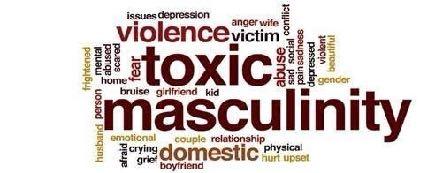
2 minute read
Living In The Light: Silencing the Cries of the Wounded by Javannah Davis
Okay, Let’s Talk…
What is Masculinity? By definition, it means qualities or attributes regarded as characteristic of men. What does it mean to be toxic? Well, it means, to be very harmful or unpleasant in a pervasive or insidious way. Okay, now, what is ‘Toxic Masculinity?’ Toxic Masculinity can be defined by adherence to traditional male gender roles that consequently stigmatize and limit the emotions boys and men may comfortably express while elevating other emotions such as anger or sexual aggressions. It can also be that its when the male ego is challenged and masculinity crosses that dangerous line into the realm of toxicity; hence, Toxic Masculinity.
Advertisement
Often times when we hear the term or think of toxic masculinity we picture it being a heterosexual male thing - WRONG! Toxic masculinity plagues both the heterosexual and the LGBTQ+ Black, Brown, and Latinx communities. Why? Because in these communities, boys are raised with structural or traditional constructs that men should look, act, walk, and talk a certain way to be considered a “Man” in that community’s eyes. Unfortunately, this underlined abuse can add to the dangers these Black and Brown young boys can potentially face in their adulthood as Black and Brown men. It can also put the lives of Black and Brown women in a dangerous position as well. Growing up with restrictions of what when can and cannot say or do when dealing with certain men.

Now, according to Dr. Jeffrey Gardere, Ph.D., ABPP of Farley and Associates Advanced Crisis Management Firm. Masculinity within the LGBTQ community shows up in many ways as to create power dynamics within the lines of sex and gender. “Masc” and “Fem” are often directly linked to sexual positions and used to shame those in the less so-called dominant role. Gay men often shaming trans people shows just how far the divisions are even within a marginalized population. Dr. Gardere goes on to say, “Lesbians have also exhibited these characteristics when discussing ‘dom’ (dominant) and ‘butch’ in comparison to those who are considered fem. Masculinity is seen as the peak power dynamic in most communities; therefore, its quite natural that other populations or sub-communities would adopt such structural hierarchy, essentially creating a class and power system.
During my experiences as a child it wasn’t uncommon to hear men say to each other when it came to feelings: “suck it up”, “toughen up”, “be a man”, “stop being a bitch” or “you’re acting like a pussy”. Being male, and being vulnerable in many different communities of several races or ethnic backgrounds can be looked upon as being weak, or unreliable. So what can we do about it? We can continue to educate every chance we get, and teach the young ones the best we can to show them a better, more productive and healthy way of living and expressing themselves. We can honor our traditions and still educate our boys and men that sharing, showing, or expressing how they feel does not make you weak, but shows strength, character, and sound mental stability.

But I’d like to hear all of your thoughts on this matter. Let me know what you think. Give me a shout at: javannahd.blaqueoutmagazine@gmail.com
So until next time, this is your girl, Javannah saying, Be good to you!

